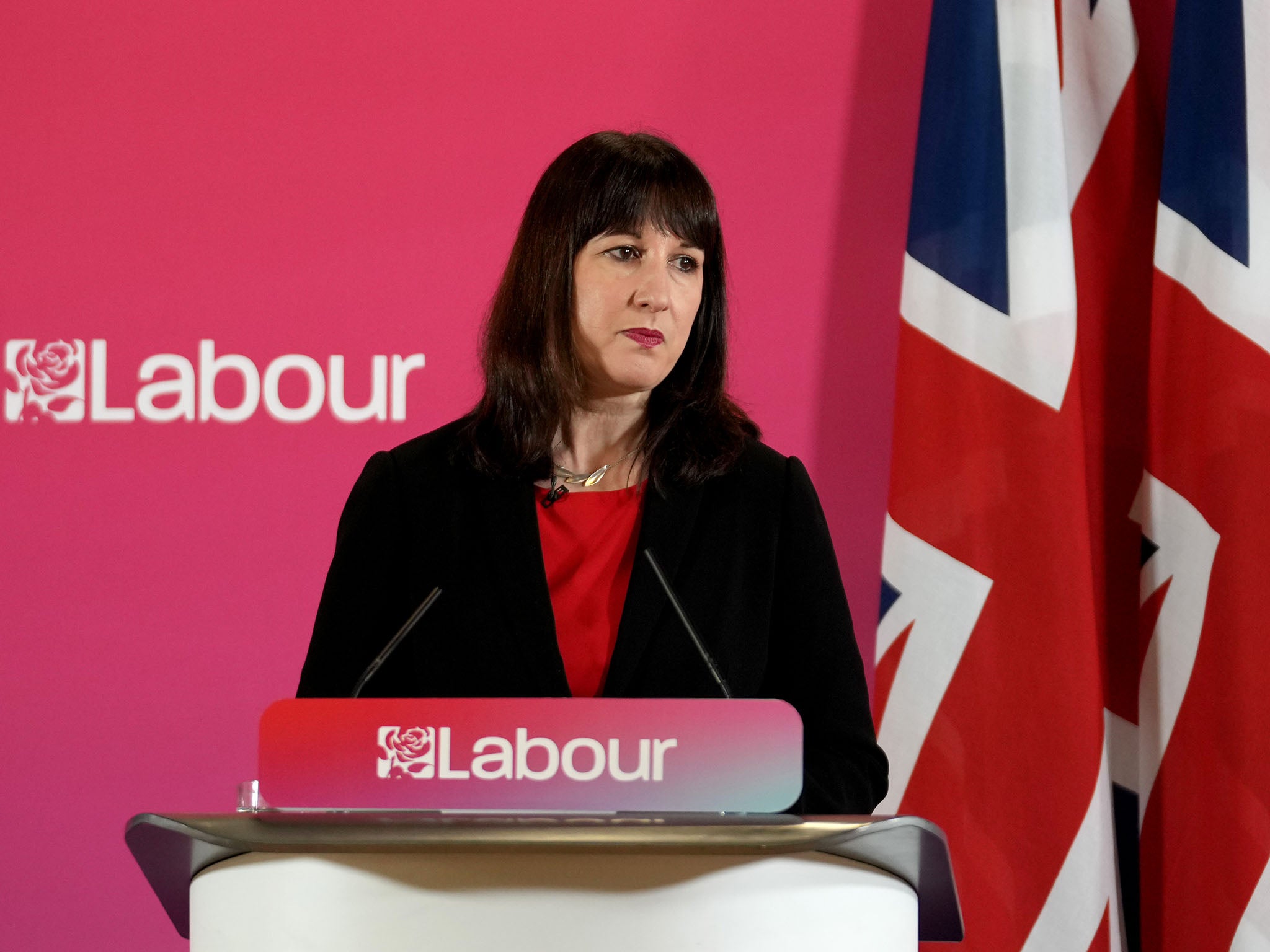Labour pledges to scrap non-dom tax break after Rishi Sunak’s wife status revealed
The opposition party has also announced that it will now review the use of trusts hidden offshore

The next Labour government would scrap the non-dom status used by rich individuals to cut their tax bills, the party has told The Independent.
The decision comes after The Independent revealed that Rishi Sunak’s wife, wealthy businesswoman Akshata Murty, had used non-domicile status to minimise her UK tax bill and unveiled alleged links between Mr Sunak and offshore trusts.
The chancellor, as well as most cabinet ministers, have declined to comment on whether they directly, or indirectly, benefitted from non-dom status or the use of tax havens.
Labour’s shadow chancellor, Rachel Reeves, said: “As the Tories raise taxes on working people, it simply isn’t right that those at the top can benefit from outdated non-dom tax perks.
“With Labour, people who make the UK their home will contribute to this country by paying tax on their global income.”

Labour’s shift to remove non-dom status adds to pressure on the government over the mounting cost of living crisis and the Partygate scandal which threatened to overshadow the prime minister’s trip to India last week, ahead of British local elections in May.
Ms Reeves said: “The prime minister and chancellor have spent the last few weeks preoccupied with saving their own skins, and have done nothing to tackle the spiralling cost of living.
“Even worse, they’ve made it harder for working people to make ends meet by hiking national insurance.”
The opposition party has also announced that it will now review the use of trusts hidden offshore and in tax havens to avoid paying tax in the UK, as part of a broader examination of the British tax system started in September last year.
Labour decided it would scrap non-dom status because it failed a value for money test, as the party claims it likely costs more in lost income to the exchequer than it generates. It would replace non-dom tax status with a mechanism similar to those in Germany or Canada which also allows temporary residents to avoid domestic tax on overseas earnings.
“This would be a clear, simple, and modern system, ending the 200-year-old rules we currently follow that mean domicile is passed down through people’s fathers, with no need for the four complicated flowcharts the HMRC use to determine someone’s domicile,” a spokesperson for the Labour party said.
The government’s current policy is a “bizarre disincentive on UK investment,” Dan Neidle, a tax lawyer at Clifford Chance said on Twitter. He believes that scrapping the special status would generate hundreds of millions of pounds in new tax revenue.
Four in 10 individuals who earned more than £5m or more in 2018 claimed non-dom status at some point, academics at the London School of Economics and Warwick University found in a recent study. It has been a live policy issue in recent years, with a conditional 15-year limit placed on the tax break introduced in 2017.
However, if a non-dom creates an overseas trust before their status lapses, they can still benefit from the tax break via that trust once the 15-year limit is reached. This is one reason why Labour has also announced it will review the use of offshore tax havens and trusts.
Mr Sunak, as chancellor, is responsible for setting UK tax policy. He has referred his financial disclosures for review by the independent adviser on ministerial interests, Lord Geidt. After a spokesperson initially defended her use of non-dom tax status break, Ms Murty announced she would no longer use non-dom status on her tax return. However, she did not give up the ability to use it in areas such as inheritance tax.
In a statement posted on Twitter earlier this month, Mr Sunak said: “I have always followed the rules and I hope such a review will provide further clarity.” A source close to the chancellor said they do not recognise allegations and documents seen by The Independent which showed Mr Sunak was listed as a beneficiary of off-shore tax havens in 2020.
Some senior Treasury officials have claimed they offered advice on decisions that were relevant to non-dom status and tax havens, but were not informed of the chancellor’s links to these issues. However, sources close to Mr Sunak said that the most senior figures in the Treasury were aware of the issue, so as to manage any potential conflicts of interest.
The former chancellor and current health secretary, Sajid Javid, issued a statement confirming he had also used non-dom status, after The Independent revealed Ms Murty’s use of the tax break.
In response to Labour’s new policy announcement, a HM Treasury spokesperson said: “We want to attract talent to work and live in the UK, however it is only right that those who choose to live here for a long time pay their fair share of tax, which is why we reformed the rules in 2017 to end permanent non-dom status.
“Non-doms play an important role in funding our public services through their tax contributions – worth over £6 billion a year.”
Labour’s review of the use of trusts and tax havens will also examine how to extend beneficial ownership registers and tax reporting regimes “to provide transparency around offshore trusts”. It will also try to force the government to confirm the full extent of offshore trust and how much this costs the state, by limiting the scope of UK taxes, a spokesperson said.



Join our commenting forum
Join thought-provoking conversations, follow other Independent readers and see their replies
Comments